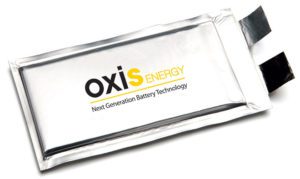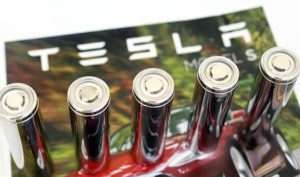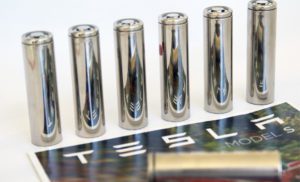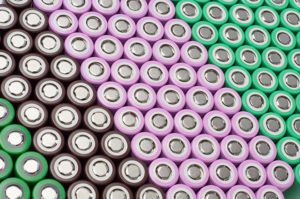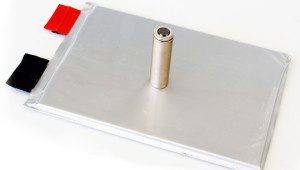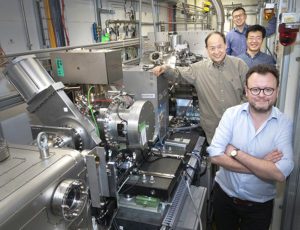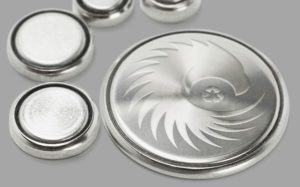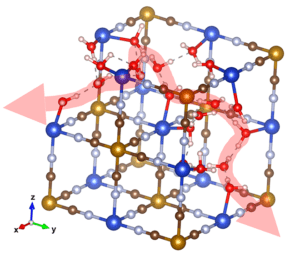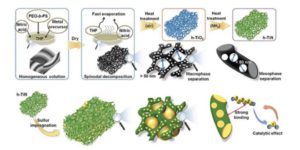The PHEV adds more power, more torque and better performance – with little mention of a plug. It’s a brutal truth: in key coastal markets like California and the Northeast, the Lincoln brand has all but vanished from any discussion of luxury vehicles. In fact, Lincoln execs admit it outright. Like crosstown rival Cadillac, Lincoln… Read more »
Search Results Found For: "lithium metal"
OXIS Energy to establish plant in Wales for mass production of Li-S cells
Oxford-based OXIS Energy has announced it will establish a manufacturing plant for the production of electrolyte and cathode active material specifically for the mass production of lithium-sulfur cells. OXIS will produce the electrolyte and cathode active material at the plant, which is currently at Manufacturing Readiness Level (MRL) 8. Oxis will build the plant at… Read more »
Tesla foresees global shortages of nickel, copper and other minerals used in EVs
EVs use twice as much copper as legacy vehicles, and smart phones, tablets and other popular consumer electronics are also consuming increasing amounts of the conductive metal. Growing demand and tight supply could soon lead to shortages of copper, nickel and other key minerals used in EV batteries. As Reuters reports, Sarah Maryssael, Tesla’s Global… Read more »
Tesla developing new battery recycling process at Gigafactory
All forms of transport have environmental impacts, and the mainstream media is fond of speculating that those of EVs are just as bad as those of fossil fuel vehicles. Some facts and figures to rebut the croakers may be found in Tesla’s 2019 Impact Report, in which the company discloses the impacts of its products… Read more »
Solid Power receives investment from Ford, says it’s ready for production in Q2 2019
Solid Power, a spin-out company of the University of Colorado, has partnered with Ford to continue development of its all-solid-state batteries (ASSBs) for EVs. The partnership will focus on further developing ASSBs towards automotive requirements. The partners will use Solid Power’s fully automated, roll-to-roll production facility, which the company says will be fully operational in… Read more »
Fortum solution recycles 80% of Li-ion battery material
A new solution from Fortum, a Finnish clean-energy company, increases the amount of material in Li-ion batteries that can be recycled to more than 80%, according to the company. The current EU-mandated recycling rate is only 50% of the total weight of the battery. First the company makes the used batteries safe for mechanical treatment,… Read more »
DOE researchers identify cause of cathode degradation in nickel-rich materials
A team of scientists that includes researchers at the DOE’s Brookhaven National Lab and SLAC National Accelerator Lab has identified the causes of degradation in nickel-rich materials for lithium-ion battery cathodes, as well as possible remedies. Researchers at Brookhaven are part of a DOE-sponsored consortium called Battery500, a group that is working to triple the… Read more »
American Manganese begins pilot of battery recycling plant
American Manganese is developing a recycling process for Li-ion batteries, and processing partner Kemetco Research has begun processing a sample of cathode scrap material at the company’s pilot plant. The pilot plant will operate in five stages: Pre-treatment of cathode material Leach of active material Purification Recovery of base metals (e.g., nickel, cobalt, manganese) Lithium… Read more »
Researchers explore proton-hopping mechanism to improve EV batteries
Researchers at Oregon State University have shown that a chemical mechanism known as proton-hopping may provide a new method of energy storage for EVs and other high-power applications. “Coming up with Faradaic electrodes that afford batteries energy density and capacitors power with excellent cycle life has been a big challenge. So far, most of the… Read more »
KAIST research team develops stable, high-rate Li-S batteries
A research team from South Korean research university KAIST has developed stable, high-rate lithium-sulfur batteries (LSBs) by using hierarchically porous titanium nitride (h-TiN) as a sulfur host. In a paper in the journal Advanced Materials, the researchers report that h-TiN/S shows a reversible capacity of 557 mAh g-1 even after 1,000 cycles at 5 C rate with only… Read more »





